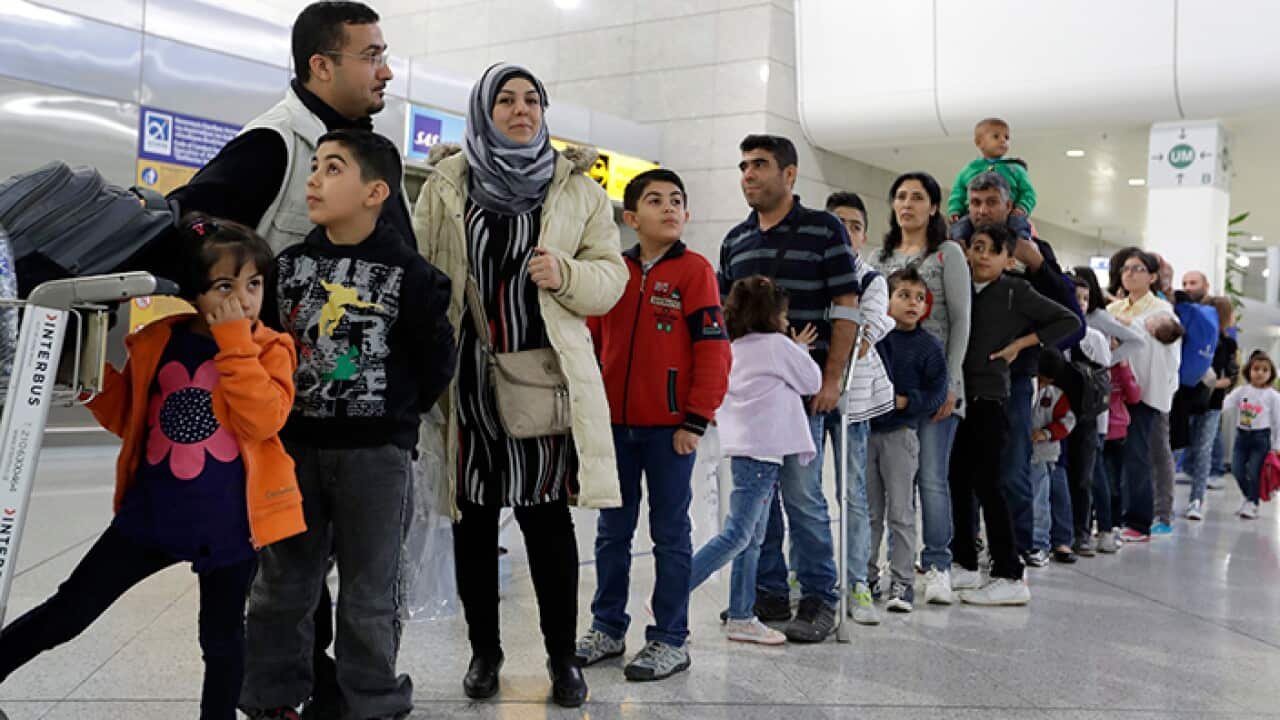The Department of Immigration and Border Protection is promising an easier visa application process for individuals and their sponsors.
The changes from November 19 affect specialised professionals, domestic and religious workers amongst others wanting to enter Australia for short-term work.
The new temporary activity visa framework will replace seven visa subclasses with four new subclasses.
The new visas cover short-term specialist temporary work, temporary activity, training and international relations.
The proposed changes are a result of a 2014 Skilled Migration and Temporary Activity Review by the Department of Immigration and Border Protection. The Department's Assistant Minister Alex Hawke says the reform reduces red tape and administrative burden.
The new temporary activity visa framework will replace seven visa subclasses with four new subclasses.
"Simpler visa products for applicants, businesses, and other organisations. There's a flat rate visa charge so that's a good innovation so there'll just be a $275 dollar charge across any of those activity areas. That means a reduction of about $100 dollars on the current system."
Paper applications have been scrapped - all visa applications now need to be made through ImmiAccount online.
"It will be simpler in theory. The applications will be online and therefore be able to be done in a more expeditious manner especially where they're compliant. We're confident, we think this will mean a faster and more efficient visa system in general."
It's a move welcomed by Melbourne-based migration agent John Unger who is a director of TSS Immigration.
Migration agent say it's good news say if a business urgently needs help from a skilled person in China or India.
"The fact that all applicants for subclass 400 visas will be able to lodge electronically, it's good news say if a business urgently needs help from a skilled person in China or India. It promises to be a significant improvement."
The new subclass 400 visa category targets short-term workers undertaking highly specialised work on a non-ongoing basis or participate in an activity or work relating to Australia's interests.
"An example of a recent set of 400 visas that my company assisted with was for specialist technicians in the construction of a new public aquarium in Cairns. The technicians who needed 400 visas all came from the United States the applications could be lodged online and the visas were granted in a matter of days."
The subclass 408 visa category covers temporary activities such as exchange, sport, religious work and domestic work for executives.
Entertainers, super yacht crews and researchers are now also part of this category. Bulk discounts and not for profit concession will no longer be available for entertainers. Instead, there will be a more targeted fee concession for charitable organisations and government-funded events.
"Some of current things an organisation has to do to sponsor a religious worker for example, will still be the same. But if we look at some of the differences, once the changes come into effect, the process will be much less complicated if a person is outside of Australia and is needed in Australia for less than 3 months. In these circumstances, a nomination by a sponsor will not be required. This is one of the changes I think most people will find most beneficial."
The subclass 407 training visa category will replace the current training and research subclass 402 visa. It is aimed at those coming to Australia for temporary occupational training or classroom based professional development activities.
Subclass 407 visa applicants will still need a nomination and a sponsor regardless of how long they intend to stay in the country unless being sponsored by a commonwealth agency.
"Universities typically use the 400 series visas in two ways. First, for postgraduate students or students enrolled in universities overseas who need to complete some additional study for their degrees. Second, the 400 series is used for visiting academics who for example may want to come to Australia to participate in research. Under the existing framework, a 402 training and research visa is used for both these purposes. Once the changes take effect, however, universities will use a new 407 training visa for the postgraduate and the 408 temporary activity visa for the visiting academics."
The subclass 403 temporary work visa is catered for people working under a bilateral agreement, teach a foreign language, undertake domestic work for a diplomat or participate in the Seasonal Worker Programme.
Employers will only need one single sponsorship application for long stay activity, training and research, professional development, entertainment, special programme and super yacht crew.
"If an organisation was approved before 19 November when these changes take effect, let's say, a long stay activity sponsor or a training and research sponsor or one of the other sponsor types. They'll still be able to use that approval to sponsor visas during the transition period or until the approval ceases. Now the transition period will go to 19 May 2017 and then they will need to think again about applying online."
Assistant Immigration Minister Alex Hawke says applications lodged before 19 November would be processed based on legislation before the changeover date.
"Well, the government intends that when this comes into effect on 19 November all future applications will be online. Current applicants will be unaffected. They'll be assessed normally. And the transition to the new system is being updated by the department on its website and people are being encouraged to lodge online."
There will be a transitional period for sponsorship, nomination and visa applications lodged from 19 November 2016 to 18 May 2017.
